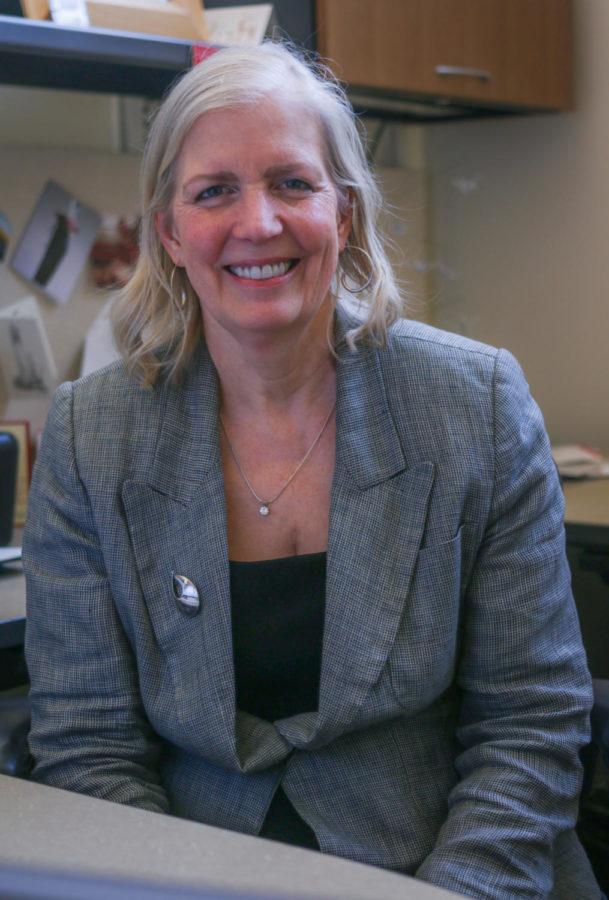Iowa State professor assists students with technology
Alec Giljohann/Iowa State Daily
Dr. Holly Bender, a veterinary clinical pathologist who creates software tools and methods to improve higher education through scholarly research and software development, brings a unique expertise to Iowa State.
March 8, 2017
Creativity and a dedication to learning has not only helped Holly Bender, associate director for the Center for Excellence in Learning and Teaching, instruct her students, but it also created innovative technology to assist students across the world.
Bender’s teaching career is decorated with numerous awards and grants.
She was part of the team that developed the Diagnostic Pathfinder, which helps veterinary clinical pathologists practice reasoning skills and analyze data. It is used by more than 25 universities across the world.
Her new project, ThinkSpace, assists teachers across multiple disciplines with implementing team-based learning and allowing faculty to be more creative with their class design.
Bender directs the Preparing Future Faculty and Graduate Student Teaching Certificate programs, according to the Center for Excellence in Learning and Teaching.
Despite having such an accomplished career in teaching, Bender didn’t go to school imagining that would be her path.
“I got interested in science in high school,” Bender said. “It just really lit me up. Biology was very interesting. I was headed to be a physical therapist, but I started looking into the veterinary profession, and I was attracted to be a large animal vet.”
Bender graduated as a doctor of veterinary medicine from Michigan State University. She went into practice, but an opportunity to teach at Virginia Tech started her down a new career path.
“I had never intended on being a professor, that was never my goal, but I got a position when Virginia Tech first started [a college of veterinary medicine],” Bender said. “I had no idea I would love it so much.”
Bender learned about using cases to teach complex topics like pathology. A student would start with a simple case like a sick dog and move incrementally to more complex cases. This turned into the basic framework for the Diagnostic Pathfinder, which offered students the ability to practice going through the process, but in a low-stakes environment.
“It was engaging, it was fun, people could put themselves in the role of a veterinarian, but not kill anything,” Bender said.
Her experience played a vital role in the development and implementation of the pathfinder.
“[Bender] was the content expert,” said Jared Danielson, associate dean of academics and student affairs at the Iowa State University College of Veterinary Medicine.
Danielson and Bender worked together at Virginia Tech on the pathfinder. Danielson was working with computer-based learning and built the program, which was the backbone. They had to work side by side as a team because Danielson did not have any experience with veterinary clinical pathology and had to rely on Bender to provide him with the detailed information.
“You can’t just tell a novice to think like an expert, but you have to take [the information] and turn it into a process that would work,” Danielson said.
This is a foundational element for the Diagnostic Pathfinder and ThinkSpace. They focus on the learning process and help students conquer difficult material.
But Bender’s work is not done. She also directs two programs. This role affords her the opportunity to help students find their right fit in the world of academia.
“Just the other day I had one of the students in the program come in and say, ‘I got a job in the liberal arts college and I never thought I would do that, but I know where I fit now,'” Bender said.
Bender was on path to be a veterinarian but found the right fit in academia. Her career has aided students and teachers across the globe. This sphere of influence will continue to grow as Bender helps more students find their fit and as the technology she has helped develop continues to spread.
















